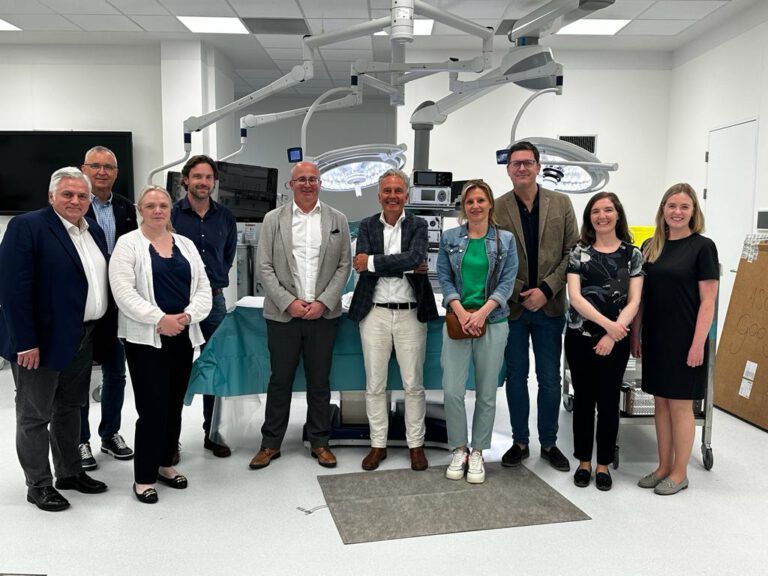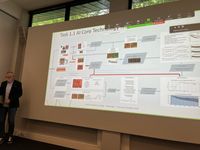CLASSICA plenary meeting sets the stage for groundbreaking AI innovation in cancer surgery
Amsterdam, 22nd and 23rd May 2023 – The CLASSICA team recently convened for a productive two-day plenary meeting hosted by Amsterdam UMC, location VUmc (VUmc) – one of the five clinical partners involved in the project. Clinicians, AI experts, ethicists and legal experts, and representatives from various European hospitals gathered, both in-person at the Amsterdam Skills Centre and virtually, to discuss the progress and future directions of the groundbreaking EU-funded CLASSICA project.
CLASSICA, an AI-guided intraoperative decision-support system, aims to revolutionise cancer surgery by providing real-time differentiation between cancerous and non-cancerous tissues. The project is set to test, develop, and launch this innovative platform in leading cancer surgery centres across Europe, starting with a multi-country implementation study.
The meeting kicked off with a detailed discussion of the project’s progress, the highlight being the initial validation of the AI-based decision support system. Preliminary results look exciting, however, we need a large dataset to train our model appropriately. We are recruiting a large number of patients over the coming months to do just that.
The second day of the meeting centred around an outreach event, with VUmc clinicians and students presenting their exciting research in colorectal cancer surgery. The team explored various ways the CLASSICA platform could potentially augment their research. The exchange of ideas and insights was a testament to the transformative potential of AI in healthcare. AI has the potential to improve health outcomes in so many ways.
One significant takeaway from the meeting was the project’s commitment to user experience. Arctur, our technology partner, will collaborate with the UCD-Mater hospital team in Dublin later this month to ensure the system is easily operable in an OR environment.
Equally important was the discussion around the legal and ethical implications of AI-support in surgical operations. A focus group is currently exploring surgeons’ perspectives on liability, asking critical questions such as who may be held liable under current law if an AI-supported operation goes wrong.
The CLASSICA project continues to push the boundaries of AI applications in clinical settings, aiming to improve patient outcomes. As this revolutionary technology is refined and optimised, the team is equally dedicated to ensuring its implementation is ethically sound and legally protected.



